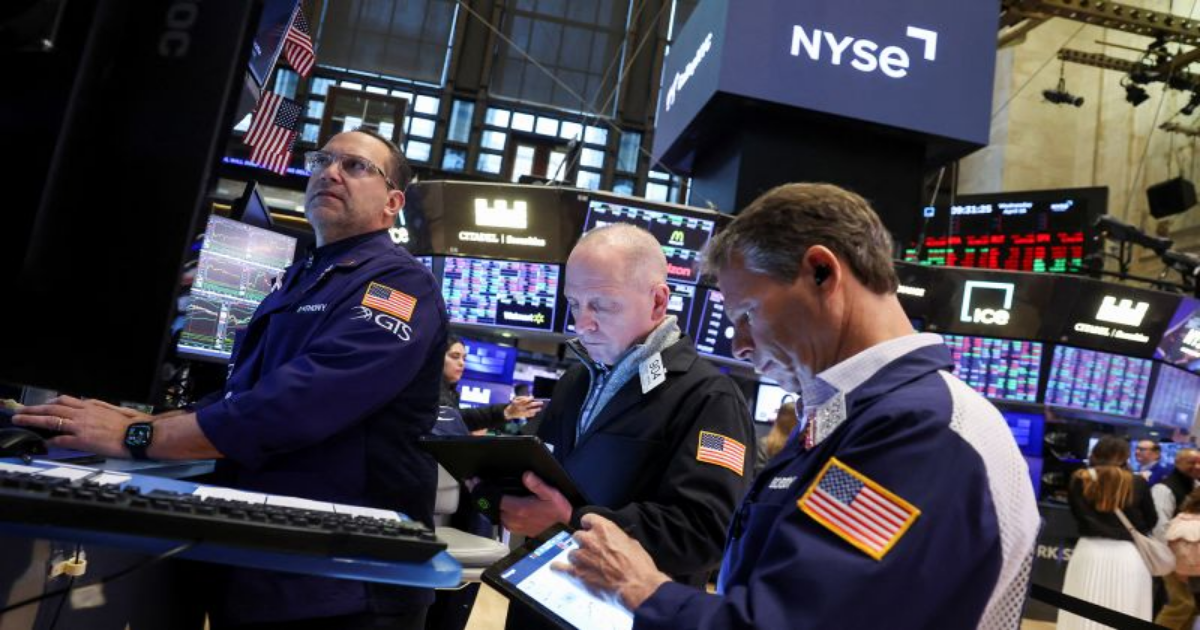New York CNN —
US stocks fell Wednesday as Federal Reserve Chair Jerome Powell warned that President Donald Trump’s tariffs are unprecedented in modern history, with effects that “remain highly uncertain.”
The Dow tumbled 700 points, or 1.73%. The broader S&P 500 fell 2.24%. The tech-heavy Nasdaq Composite tumbled 3.07%.
“The level of the tariff increases announced so far is significantly larger than anticipated,” Powell said at an event in Chicago. “The same is likely to be true of the economic effects, which will include higher inflation and slower growth.”
Wall Street has been mired in uncertainty as investors wrestle with the Trump administration’s back-and-forth on trade policy.
Powell’s comments echo concerns that emerged in recent weeks as consumers and businesses grapple with Trump’s tariffs. Spending at US retailers surged in March at the strongest monthly pace in more than two years, according to Commerce Department data, as Americans rushed to beat Trump’s massive tariff hikes.
Nvidia (NVDA) slumped 6.87% on Wednesday after the chipmaker said it would take a $5.5 billion hit because the US government placed new restrictions on the export of its artificial intelligence chips to China.
The export restriction on Nvidia is another step in the growing contest between the US and China for dominance in AI. That battle has heated up since January, when upstart DeepSeek caught Silicon Valley by surprise with its lower cost, ChatGPT-like AI model that has spurred an AI boom in China.
“While we expect that trade talks will ultimately yield progress, the brinkmanship between the US and China looks set to continue in the near term,” said Solita Marcelli, chief investment officer for the Americas at UBS Global Wealth Management, in a note Wednesday.
Stocks are coming off slight losses on Tuesday. Investors are on alert for updates from the White House that might signal developments in trade policy. The Trump administration on Monday kicked off investigations into imports of pharmaceuticals and semiconductor chips (a precursor to potential tariffs), according to notices posted to the Federal Register.
Trump said on Sunday he would be announcing a tariff rate on imported semiconductors over the next week, adding that there would be flexibility with some companies in the sector.
The S&P 500 on Monday had posted its first back-to-back gain in two weeks after the Trump administration announced exemptions on tariffs on electronics imported from China, in addition to Trump saying he is considering exemptions on tariffs on automakers. Despite the brief rally, the S&P 500 was down Tuesday and Wednesday and is still trading below its closing price on April 2, just before Trump initially laid out his “reciprocal” tariffs.
“In the interim, if the recent flip-flopping around US tariffs and their implementation (as with last Friday’s reprieve for tariffs on tech) is anything to go by, the only certainty is that market participants will be forced to endure a period of extended market uncertainty,” analysts at Citi said in a Monday note.
The prospects for the global economy have taken a knock because of Trump’s trade war, according to a new report by the World Trade Organization. The WTO said it expects global gross domestic product to expand by 2.2% this year. That growth would be 0.6 percentage points lower than the rate it would expect in a scenario with no additional tariffs.
Meanwhile, gold surged more than 3% on Wednesday to a fresh record high above $3,300 a troy ounce. Gold is considered a safe haven amid economic and geopolitical turmoil. Analysts at Goldman Sachs on Friday raised their year-end price forecast for gold to $3,700, underscoring how demand for the yellow metal is expected to continue amid an escalating US-China trade war.

Steel worker tells CNN how he feels about tariffs
03:28 – Source: CNN
Investors this week are also digesting earnings results for the first quarter. Wall Street’s banking giants like Bank of America posted strong earnings, though chief executives on calls with analysts acknowledged that uncertainty looms.
Bank of America, Goldman Sachs and JPMorgan Chase all posted record revenue from equities (activities related to the stock market) in the first quarter as the banks’ trading desks benefited from volatility in the market. Despite strong results, the chief executives at the major banks have warned of continued uncertainty.
JPMorgan Chase CEO Jamie Dimon said in a statement Friday that the economy is “facing considerable turbulence.”
Goldman Sachs CEO David Solomon said in a statement Monday that the climate is a “markedly different operating environment than earlier this year.”
“The prospect of a recession has increased with growing indications that economic activity is slowing down,” Solomon said on a call with analysts. “Our clients, including corporate CEOs and institutional investors, are concerned by the significant near-term and longer-term uncertainty that has constrained their ability to make important decisions.”
Bank of America CEO Brian Moynihan said in a statement on Tuesday that “we potentially face a changing economy.”
The US dollar index, which measures the dollar’s strength against six major foreign currencies, slid 0.8% Wednesday and hit its lowest level in three years. The dollar index is coming off its biggest single-week decline since 2022.
“All eyes are on Washington,” said Terry Sandven, chief equity strategist at US Bank Wealth Management Group. “The tariff decisions are what will impact sentiment and equity prices.”
The yield on the 10-year Treasury note traded around 4.28%, down from Tuesday, as investors snapped up government bonds.
“Extreme fear” was the sentiment driving markets on Wednesday, according to CNN’s Fear and Greed Index. The index has been staunchly in “extreme fear” since the end of March.
